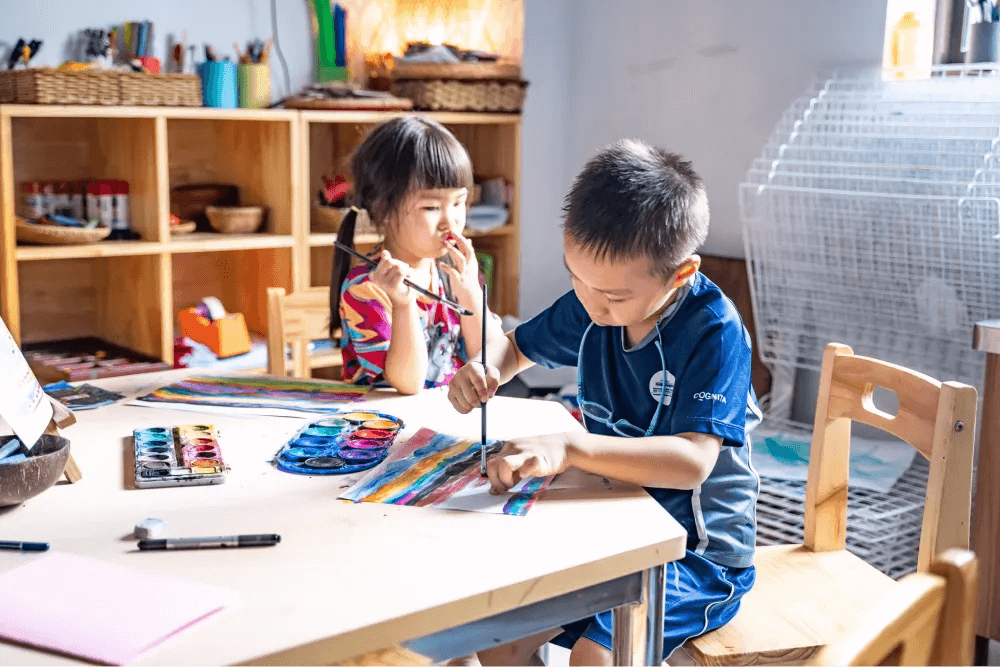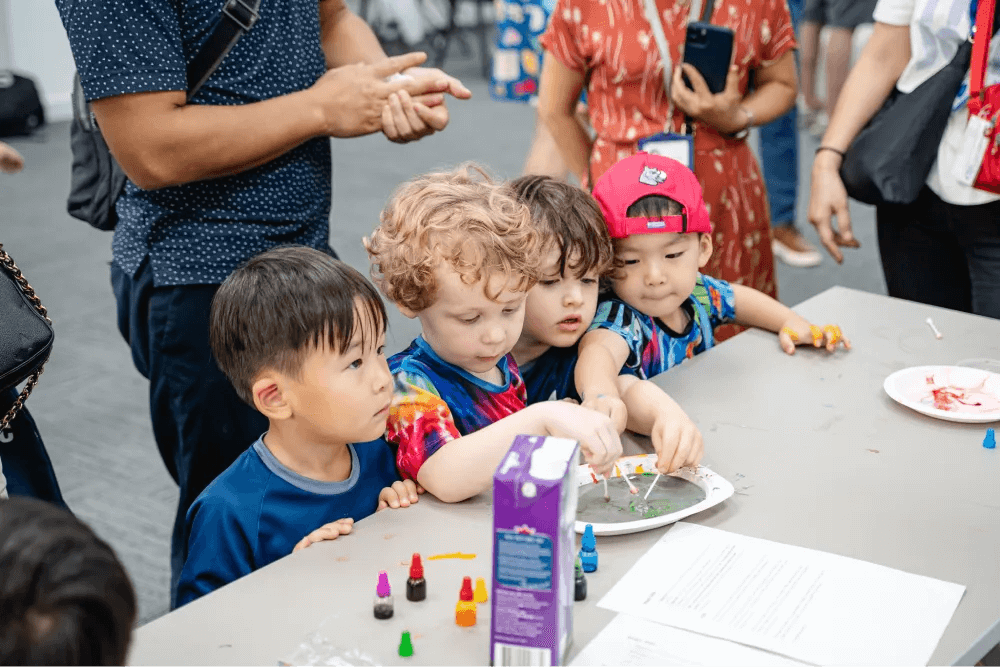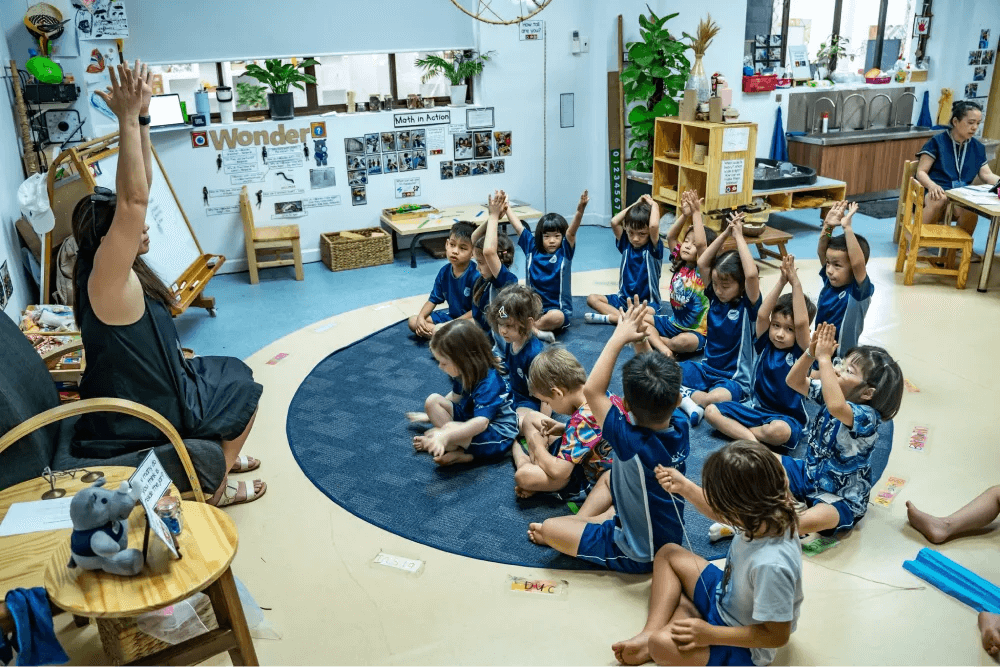Easing the Transition: A Parent’s Guide to the First Day of Kindergarten
Table of Contents
- Easing the Transition: A Parent’s Guide to the First Day of Kindergarten
- What Does Your Child Really Need From You?
- 1. They may grow up fast but still need help sometimes.
- 2. They need us to model your kindness.
- 3. They need our help to discover their passions.
- 4. They need our support to understand their emotions.
- 5. They need guidance to find meaning in their struggles (without always solving them).
- 6. They need help to make sense of all the information they meet, hear and see.
- 7. Sometimes, they need to figure things out independently.
- 11 Things Parents Should Do for Your Child’s First Day of Kindergarten
- 1. Read Books and Discuss School with Your Child!
- 2. Create Routines for Your Child
- 3. Prepare the Day Before
- 4. Be Ready for Emotions
- 5. Arrive Early on the First Day!
- 6. Capture “First Day of School” Memories with Photos
- 7. Talk About Pick-Up Arrangements
- 8. Connect with Other Kindergarten Parents
- 9. Bring Healthy Snacks When You Pick Up Your Child
- 10. Ask About Their Feelings
- 11. Give Them a Keepsake from Home and Celebrate the First Day!
- Cheers to A Great Kindergarten Year!
- FAQs
- What Does Your Child Really Need From You?
The first day of kindergarten for parents is a significant milestone for both children and parents. It can be an exciting yet emotional time, and preparing for this transition can help ease anxiety and set a positive tone for the school year. Here are some tips to help parents and children navigate this important day smoothly:
- Read Books and Discuss about School with Your Child!
- Create Routines for Your Child
- Prepare the Day Before
- Be Ready for Emotions
- Arrive Early on the First Day!
- Capture “First Day of School” Memories with Photos
- Talk About Pick-Up Arrangements
- Connect with Other Kindergarten Parents
- Bring Healthy Snacks When You Pick Up Your Child
- Ask About Their Feelings
- Give Them a Keepsake from Home and Celebrate the First Day!
Before delving into specific ways and activities parents should do for their children’s first day of kindergarten, let’s review things that children need from you!
What Does Your Child Really Need From You?
Parents need to understand what their children really want from them to foster a healthy and supportive environment. Here are some aspects to consider:
1. They may grow up fast but still need help sometimes.
Children may grow up fast, but they still need help sometimes. For example, potty training often extends beyond toddler years as kids face numerous challenges like bedwetting and proper wiping techniques. When they start kindergarten, the problem may persist.
Accidents may happen at any time, so sending them to school with backup clothes is necessary. Practice at home is equally essential in building their confidence and independence when using the bathroom.
2. They need us to model your kindness.
Children need parents to model kindness because they will inevitably face unkindness as they interact more with peers in school. Teasing and exclusion are widespread in kindergarten, which will hurt their feelings.
Children are naturally inclined towards kindness. Hence, parents should demonstrate kindness in daily interactions with people around them. Children can learn when observing their parent’s behaviors.
3. They need our help to discover their passions.
Many children develop their interests in specific topics like trains or dinosaurs, which is helpful for their developing brains. While they don’t need to find their lifelong passion at this stage, parents should offer opportunities that might affect their future careers.
For example, if a child is passionate about art, parents can provide drawing materials and let them join art classes to encourage exploration and curiosity.
Some children are not interested in school subjects. In this case, parents can provide books and videos to broaden their horizons, expose them to the wide world, and encourage them to explore new things.

Discover Their Passions
4. They need our support to understand their emotions.
Kindergartners may have moved past their tantrum stage but still experience big emotions that lead to meltdowns after long school days. They tend to hold onto their emotions at school because there are too many people around them and they will only release pent-up tension once they are safe at home.
Parents play a vital role in assisting children to cope with their emotions at home. Provide emotional guidance to your children, helping them label and understand their feelings. It is crucial to teach children that no emotion is inherently negative. Instead of hastily encouraging them to return to a state of happiness, parents should listen attentively and support their children through their emotional experiences.
5. They need guidance to find meaning in their struggles (without always solving them).
Children face numerous challenges in kindergarten, such as coping with a teacher they don’t like or dealing with hard schoolwork. These issues are not supposed to be resolved immediately but require parental support.
However, parents should support them by listening and helping them learn from their mistakes instead of trying to intervene. This approach can help children mature and understand that overcoming difficulties can lead to positive outcomes.
6. They need help to make sense of all the information they meet, hear and see.
As children start kindergarten, they’ll encounter stories and misinformation from various sources. Peers may share exaggerated news, and with the booming digital media, children are constantly exposed to overwhelming information.
Parents need to help kids distinguish fact from fiction and determine age-appropriate information by explaining false stories and teaching them to question what they hear and see.
7. Sometimes, they need to figure things out independently.
Parents should help their children whenever they need it. However, children sometimes have to figure things out independently to develop a sense of self-reliance and competence. This solid foundation helps them navigate the world with confidence.
Parents can support their child’s independence by allowing them to experience natural consequences. For instance, children have to deal with forgotten items on their own. They have to fix the problem themselves.

Learn To Be Independent
Let’s explore “11 Things Parents Should Do for Your Child’s First Day of Kindergarten” to ensure a successful start to this milestone!
11 Things Parents Should Do for Your Child’s First Day of Kindergarten
Preparing your child for their first day involves more than simply packing a backpack, it includes practical and emotional preparations. Here are some tips for kindergarten parents to support their child feel confident and ready to embark on this adventure:
1. Read Books and Discuss School with Your Child!
Reading books about school with your child helps them understand what to expect and ease their anxiety about the new experience. Moreover, good books can spark curiosity, encouraging young minds to ask questions and express their feelings about school. This habit also creates warm memories and instills positive thoughts of school in them.
Parents can request books from local libraries and develop a reading routine. Reading those books multiple times before school will provide comfort through familiarity.
After reading, parents can proceed to the discussion part by talking about the stories and characters. Children will have opportunities to share their thoughts about the stories.
2. Create Routines for Your Child
The power of routines lies in their repetition. Children feel comfortable with repetitive activities because they know what to expect. Hence, parents should start establishing good routines before their first day of kindergarten.
- Sleep Routine: Many children stay up late during the summer, but parents should adjust their bedtime gradually at least a week before school starts.
- Lunch Routine: Each kindergarten has different lunchtime rules. Parents need to find out how long their child’s lunch period will be and ask them to eat within this time frame using their lunchbox.
- Bathroom Routine: Bathroom tasks include wiping and washing hands properly. Parents should also prepare clothes that are easy to take on and off.
- Morning Routine: An ideal morning routine helps children quickly and independently prepare for school. Before kindergarten, they should be taught to eat breakfast, brush their teeth, get dressed, use the bathroom, and make the bed correctly.
- Goodbye Routine: Hugs and kisses before sending them to class can ease their transition into the school day. In addition, parents should decide whether to walk their children to their classroom or stop at the drop-off lane to avoid confusion and lingering.
3. Prepare the Day Before
Getting prepared for the first day of kindergarten can be stressful because it marks a milestone in a child’s life. Effective preparation the evening before the first day of kindergarten ensures smooth routines and minimizes stress. Parents can prepare nutritious meals in advance so their children can be nourished without the morning rush.
Other first day of kindergarten ideas for parents are choosing clothes and packing backpacks the night before. If parents want to take commemorative photographs, gather family members ahead of time to reduce morning pressure.
4. Be Ready for Emotions
Preparing for the parents first day of kindergarten entails emotional preparedness for both children and parents. They experience a range of emotions, including nervousness, excitement, sadness, and fear of separation. Since parents have more experience, they can help their kids handle those fixed feelings.
Some children can confidently walk into their classroom, while others cling to their parents. Regardless of their reaction, parents can provide them with a special memento from home, such as a family photo or a familiar item, to comfort them during anxious moments.
Emotional preparation is vital for parents as well. They may have feelings of worry and pride, but they have to manage their own issues to provide stability for their child during the first period of kindergarten.
 Prepare Emotionally
Prepare Emotionally
5. Arrive Early on the First Day!
Arriving early on the first day of kindergarten ensures a stress-free start. Many families gather to send their children to school on this special occasion, making the parking lot and entrance crowded. Parents can avoid the rush and have more time to comfort their stressed kids by showing up early.
Early arrival also allows more time to meet the teacher and take pictures. Besides, parents can help their children become familiar with their surroundings and even make new friends. Once they feel a sense of belonging, they will be more confident and comfortable, making the transition smoother when parents leave.
6. Capture “First Day of School” Memories with Photos
Parents can document the “first day of school” through photos to preserve this milestone in their child’s educational journey. These images can be a source of motivation and pride for children, allowing them to see how much they have grown over the years.
Take photos of your child in their first-day outfit and give them a sign that includes the date and grade level as a context for future reflections. Parents can also put them in different settings to enrich the album.
The photo session should be enjoyable to avoid adding stress to an anxious day. It should only last a few minutes but is long enough to give the child the support they need for their new adventure.
7. Talk About Pick-Up Arrangements
Clarifying pick-up arrangements is crucial for your child’s comfort and safety. When they know who will pick them up and where to meet, they will reduce their fear of getting forgotten.
The arrangement reinforces trust between the child and the parent. On their first day of anxiety, they indeed want to go home with their family. Discussing pick-up arrangements in advance reassures them that parents are ready to bring them home after a hard-working day.
It would be best to repeat the plan a few times a day and remind them again that morning. Ask them to speak out to release their stress if they show any concerns about the pick-up plan.
8. Connect with Other Kindergarten Parents
Experienced parents give newcomers insights and guidance about school rules and routines on the first day of kindergarten for parents. Newcomers can rely on their practical advice to prepare their kids appropriately.
Moreover, parents’ connections help build a community where families feel more integrated into the school environment. This sense of community alleviates the anxiety parents often have at the start of a new school year.
Parents can start conversations during school events or pick-up times. Parent meetings are another precious chance to meet and interact with others. Seasoned parents are usually happy to help because they experienced the same nervousness on their first day. Parents now can share a common goal of creating a supportive community that enhances their children’s educational journey.
 Connect with Other Kindergarten Parents
Connect with Other Kindergarten Parents
9. Bring Healthy Snacks When You Pick Up Your Child
Recess is brief, and the excitement of making new friends and playing in a new playground may distract children from eating enough in their snack time. When running out of energy, they need food to recharge, so preparing snacks at the end of the day is necessary.
Parents can bring healthy snacks when they pick up their children and feed them as soon as they see them to replenish their energy. The food will helps stabilize their mood and conditions during the transition from school to home. It’s best to choose snacks that are healthy, nutritious, and easy to eat and avoid overfeeding your child. After sharing about their first day, they will still have a wholesome dinner ahead of them.
10. Ask About Their Feelings
The new environment can be overwhelming for children whose surroundings easily affect their moods. They may experience a mix of curiosity, nervousness, and excitement that they can’t express.
Creating a calm and cozy atmosphere for the conversation is necessary on the first day of kindergarten for parents. By asking about their feelings, parents can understand what struggles they are dealing with and give them advice to overcome their challenges. Moreover, active listening will encourage them to express themselves openly. The conversation will strengthen the parent-child bond and help them fight their fear to get ready for their first day.
11. Give Them a Keepsake from Home and Celebrate the First Day!
When getting stuck in a new environment, children seek comfort from a familiar item as it reminds them of their home and helps reduce anxiety. The keepsake can be their favorite toy or a family photo, but it should be meaningful and small enough to fit in the bag easily.
Celebrating the first day of kindergarten for parents and children is crucial in creating a positive association with school and highlighting this significant milestone. While children may feel anxious about their first day, the celebration brings excitement, making the day more memorable and cherished for them.
For parents and family, this is also an opportunity to come together and talk about the new school experience. Children are more likely to share their feelings and experiences when the whole family is present and attentive.

Celebration Is Needed
Cheers to A Great Kindergarten Year!
The first day of kindergarten for parents can be easier once they follow the aforementioned steps. It will be a great year that sets a robust foundation for their long-term educational journey.
Consider applying to the ISHCMC to continue their adventure. With a strong focus on holistic development, ISHCMC provides a supportive environment for your child to thrive academically and emotionally. At ISHCMC, the curriculum gives students outstanding advantages by building their social skills, nurturing their curiosity, and improving their problem-solving abilities. Apply now and ensure your child’s future success!
FAQs
Starting kindergarten is an exciting yet challenging milestone for both children and parents. Here are some frequently asked questions to help you navigate this transition smoothly.
What to tell a kindergartener on the first day of school?
On the first day of kindergarten, parents should give their children encouraging messages to alleviate their anxiety, such as:
- Believe in yourself and your abilities.
- Be the friend you would like to have.
- Today is going to be a great day.
- Your feelings are more important than anything.
- You can achieve anything you set your mind to.
- Feeling a little nervous is OK – it means you are brave!
- Make wise decisions throughout the day.
- I always stand by your side.
- “Nothing is particularly hard if you break it down into small jobs.” —Henry Ford.
How to handle a crying child in kindergarten?
Parents need patience and understanding to handle a crying child. Here are steps to consider:
- Calm them down and encourage them to express why they are sad. If they can’t say, reflect back on their feelings to show you understand, like saying, “Are you sad because I didn’t buy you that toy?”
- Suggest different ways to solve the problem.
- Assure them that it is okay to feel upset or even cry when things don’t seem good.
- If they persist or look excessive, seek professional help from healthcare experts.
How long does it take to adjust to kindergarten?
The adjustment period for kindergarten often ranges from 15 days to a month, but it can vary depending on the child. Some children adapt quickly to a new environment, while others require more time to become familiar.
During challenging times, kids may change their sleep and eating patterns, refuse meals, and have sleep disruptions. It is normal for them to exhibit behavioral regressions as they acclimate to new surroundings. However, if your child continues struggling, seek guidance from healthcare experts.






